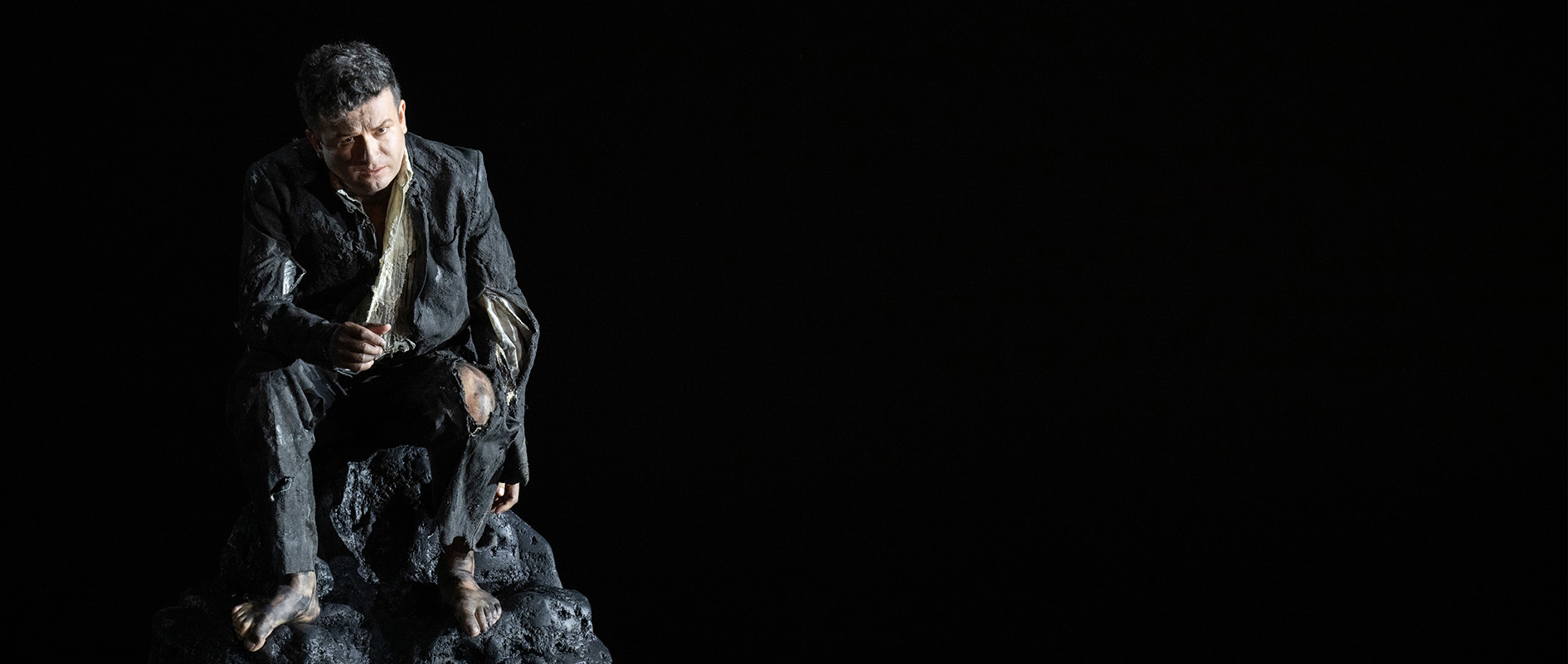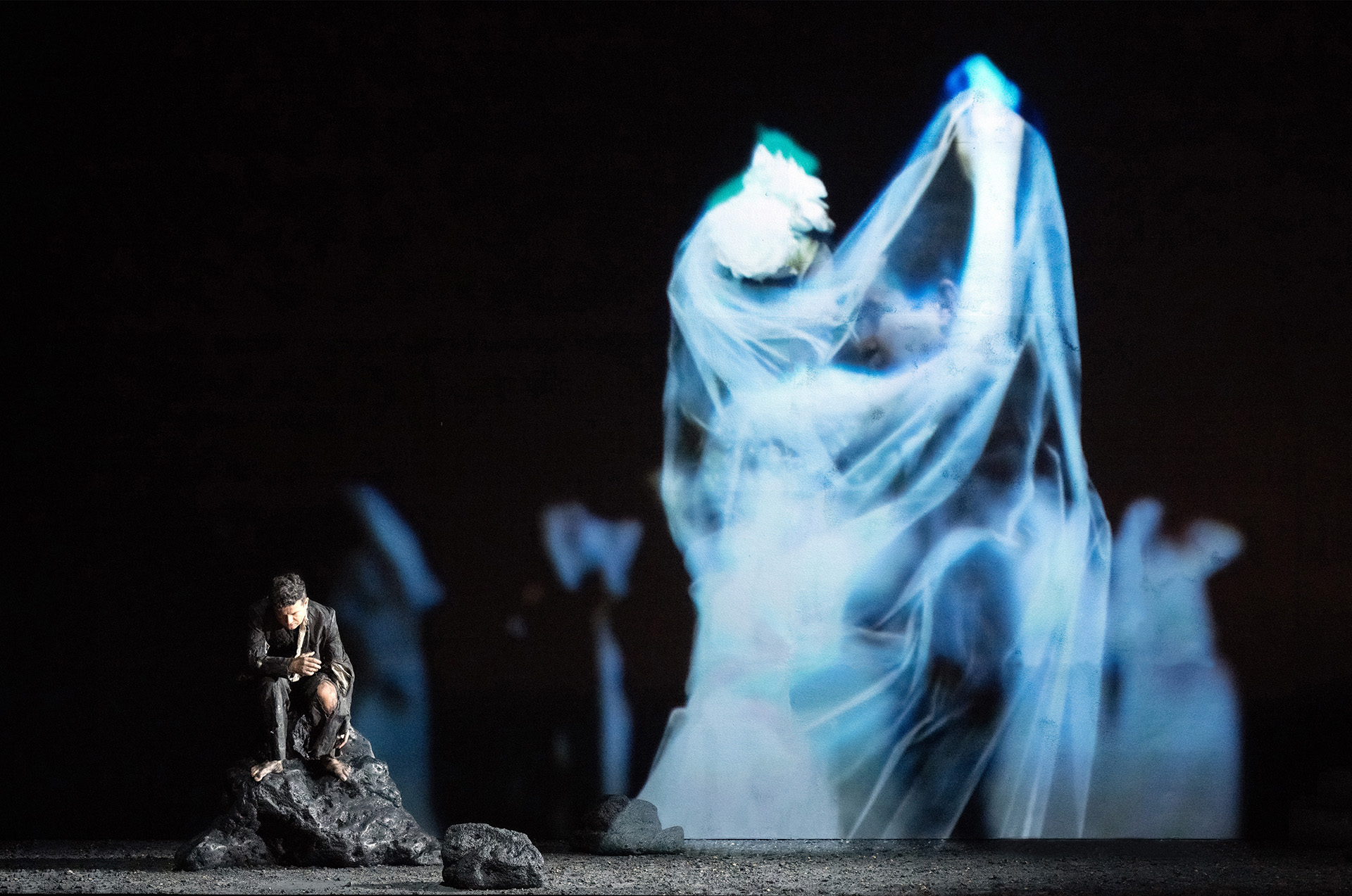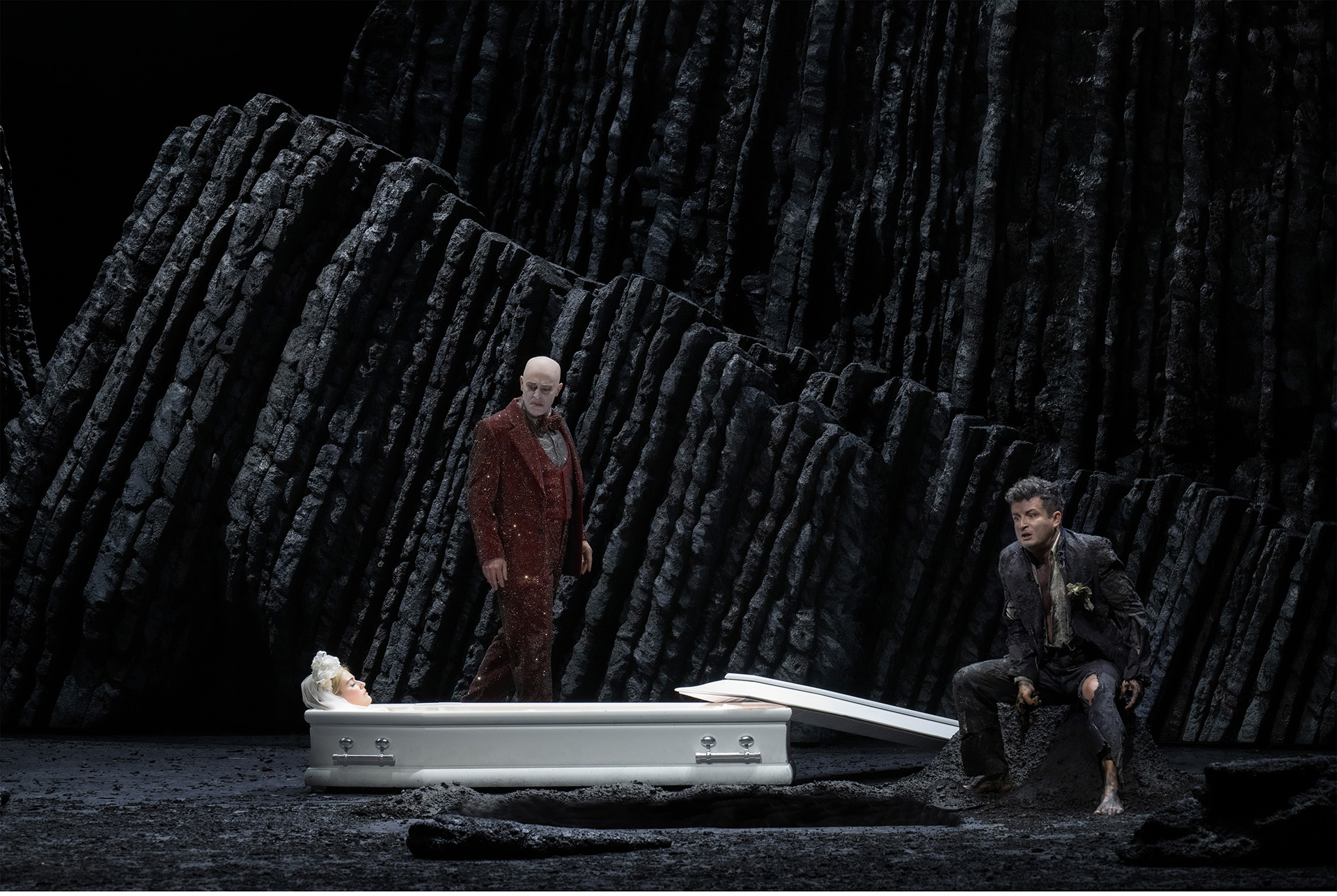 “I’d love to perform in Poland more frequently” – interview with tenor Krystian Adam Krzeszowiak
“I’d love to perform in Poland more frequently” – interview with tenor Krystian Adam Krzeszowiak
Krystian Adam – the professional name used by Polish tenor Krystian Adam Krzeszowiak on international stages – is praised for his vocal technique, diction, and stage presence. Although he most often performs works from the Baroque period, he interprets various musical styles with versatility and emotional depth. Exactly a year ago, a new production of “Orfeo,” composed by one of the founding fathers of opera, Claudio Monteverdi, premiered at the Zurich Opera. Directed by Kazakh director Evgeny Titov, the production was recently revived. “Full of surprises until the last moment, the staging plays with ambiguity, hidden pathways, and 180-degree narrative turns” (Tages Anzeiger). The title role is sung by Krystian Adam Krzeszowiak, with whom we spoke just moments after he stepped off stage.
First things first – huge congrats on your performance. The La Scintilla orchestra played with full force tonight, and not every voice managed to cut through. You led us through hell with confidence and beauty – something the audience clearly appreciated.
Thank you very much, that means a lot.
The Zurich production ends unexpectedly – Orfeo doesn’t follow Apollo. He…
…we don’t really know if he commits suicide. A gunshot is heard, but only after the lights go out. The director leaves the interpretation up to the audience. There are more changes – the order of scenes is reversed, and Eurydice is already dead in the first scene. At first, we discussed Evgeny Titov’s vision extensively. I approached it with some skepticism, but I trusted the conductor (Ottavio Dantone), who encouraged us to give it a chance. Gradually, the concept began to make sense. And now, a year after the premiere, I see its cohesion and have come to appreciate Titov’s concepts.
Especially in the Baroque. And how was your “conversation” with Charon?
[laughs] Yes, I had a dialogue with a machine positioned above the gates of hell. That animatronic face shows how far technology has come – its facial expressions, naturally blinking eyes, lips moving differently for different vowels – “o” versus “a.” The technicians operating Charon’s face knew his entire text by heart and used a complex control panel to make the interaction look as natural as possible.
You specialize in music from the 16th and 17th centuries. Why this particular repertoire?
It happened somewhat by chance. While studying in Milan, one of my teachers approached me and said he needed a substitute for Handel’s “La Resurrezione.” At the time, I had no experience with Baroque music, but I went to the rehearsal and found the music incredibly interesting and enjoyable to sing. My agent at the time encouraged me to explore it further. And that’s how I fell in love with Baroque music.
Baroque opera has an open form. Composers did not write in every pause or fermata, leaving room for interpretation, acting, and adjusting to the circumstances or basso continuo ensemble. How do you approach that freedom?
My approach owes a lot to the Italian conductor Ottavio Dantone, with whom I performed one of my first major productions—Handel’s “Rinaldo” in Ravenna. He came to a rehearsal with his own variation for the Da Capo section, which struck me as almost jazz. It turned all my formal Baroque training on its head. But back in the day, audiences were not as passive as they are today. They ate, drank, talked – you had to keep them engaged. Even Monteverdi wrote ornamentation to highlight the text, such as the aria “Possente spirito,” which exists in two versions: one in half notes, melodic, and another that’s a pure variation. When I first saw the score while learning the role of Orfeo, I was overwhelmed. Mr. Monteverdi, this can’t be sung! How do you even count that? It looks like modern music mixed with jazz and something else. But over time, it becomes more natural. Cecilia Bartoli also changed how people approach Baroque – she showed you could do some vocal acrobatics, shout here and there, or sing very softly. My repertoire isn’t just Baroque – I also sing a lot of Mozart, classical pieces, and sometimes even Romantic ones. So I sometimes borrow expressive tools from later eras, and they work perfectly.
Monteverdi composed “Orfeo” for the Mantuan court to demonstrate the superiority of the Gonzaga family over the Medici—a form of power-building through culture. You’re part of a growing group of Polish singers regularly appearing on top opera stages with leading conductors and directors. A kind of “Polish Soft Power”?
It’s something I’m genuinely happy about. The more of us there are, the more we can support each other. Many younger singers study abroad and are increasingly well-prepared. It’s something to be proud of – we really do have wonderful voices. When I started out, there were only a handful of us. There were travel restrictions, language barriers, very different challenges from today.
But nowadays, you mainly perform outside of Poland.
That’s true. I rarely perform in Poland, though I’d love to do It more often. I do get invitations, but often on short notice – just a month or so in advance. My calendar is planned out two or three years ahead. It’s not always possible to make it.
How would you like to contribute to the Polish opera scene?
For instance, through education. I sometimes lead masterclasses in Wrocław. I try to share what I’ve learned about early music performance. I’d also love to see artistic seasons planned several years in advance. As far as I know, only the Polish National Opera in Warsaw does this. That kind of planning would make it easier for me to perform for Polish audiences too.
We increasingly live in a QR-code culture – scan, listen for a moment, skip to the next track. Opera, on the other hand, requires time and stillness. How can we invite people in?
You have to find the right opera – something that truly fascinates you. Most people will enjoy a traditional and beautifully sung “La Bohème” by Puccini or “La Traviata” by Verdi. Some will fall in love with the richness and splendor of Baroque opera; others will be moved by 20th-century works. What’s certain is that it’s a world worth discovering – one full of emotions we experience every day. The only difference is that they’re written in musical notes.
Like in the Zurich “Orfeo,” where the protagonist is defeated by his own humanity?
In mythology, Orpheus is called a demigod – a being suspended between the world of mortals and gods. But in Monteverdi’s opera, he is profoundly human. He loves deeply, suffers loss, rebels, risks everything, descends into the underworld with hope of changing fate. And he makes a mistake – just like any of us might. That’s what makes it so moving – we see ourselves in this story. Our daily choices, weaknesses, hopes, and courage. Opera – whether contemporary or historically styled – deals with universal themes. That’s what makes it not just an art form but a mirror in which we can see ourselves.
Love?
Love, betrayal, war, loss, pleasure, rejection – opera speaks of them all. It reveals the full spectrum of human emotions, yet maintains a certain distance – like studying a textbook of human destiny translated into music. I remember my early days – before I even spoke Italian, I’d attend performances just to listen. I didn’t understand the text, but the music spoke for itself – it moved me, enchanted me, struck straight to the heart. Later, while preparing for performances, I began reading the stories and analyzing the librettos. But the real revelation came when I learned the language and sat in the audience for “Tosca.” I understood every word, every nuance. Suddenly the whole experience lit up in a new way. Around me were ordinary people crying, reacting as if they were watching the best movie of their lives. That’s when I realized that opera isn’t elitist. If someone loves beauty, is moved by music – any kind of music – if they love film, theater, emotions expressed through sound, opera will give them all that, and perhaps even more.
Which role is still on your dream list?
There are so many operas, so much great music – it’s unbelievable. Once, a patron of the arts approached the Milan conservatory and asked us to perform one of Mozart’s missa brevis for his son’s wedding. He must have loved it, because afterward, he organized monthly concerts of Mozart’s masses. There are so many of them, it turned into a side job for us. There’s such an abundance of this kind of music that I constantly have something new, fresh, and exciting to learn and sing. I’d also like to return to “The Return of Ulysses.” I’ve sung in it before, but as Telemachus, Ulysses’s son. Now, I feel I’ve matured enough to take on the title role.
If you could choose one opera title, one director, one opera house, and one stage partner – what would your dream be?
Hmm… tough question. I love singing with my wife (Natalia Rubiś), who’s a soprano and is currently focusing on a repertoire that’s not exactly in my lane [laughs]. But if I had to choose, it would probably be Mozart’s “Idomeneo.” Natalia performs Elektra beautifully, and I love singing the title role. As for the theater – definitely somewhere in Italy, because I love singing in Italy. La Scala would be wonderful, but you mentioned La Fenice, and I absolutely love Venice.
Zurich, July 6, 2025




